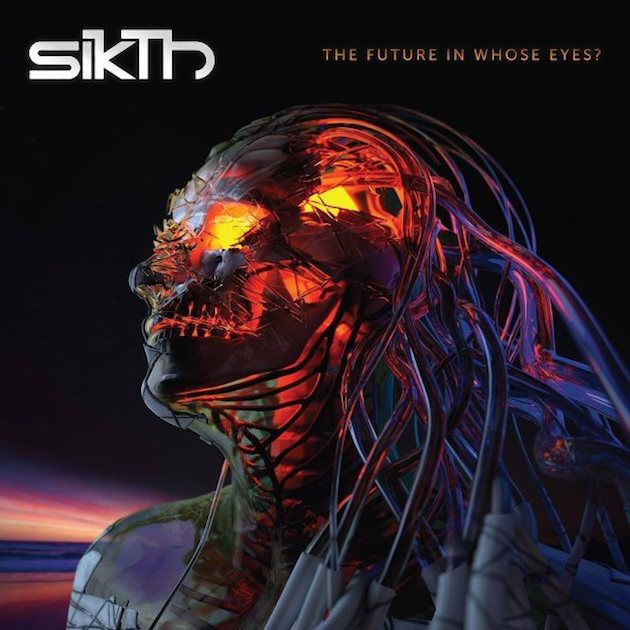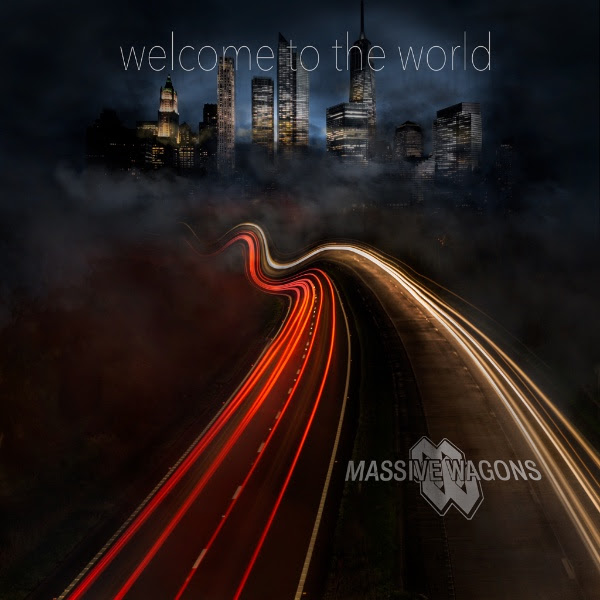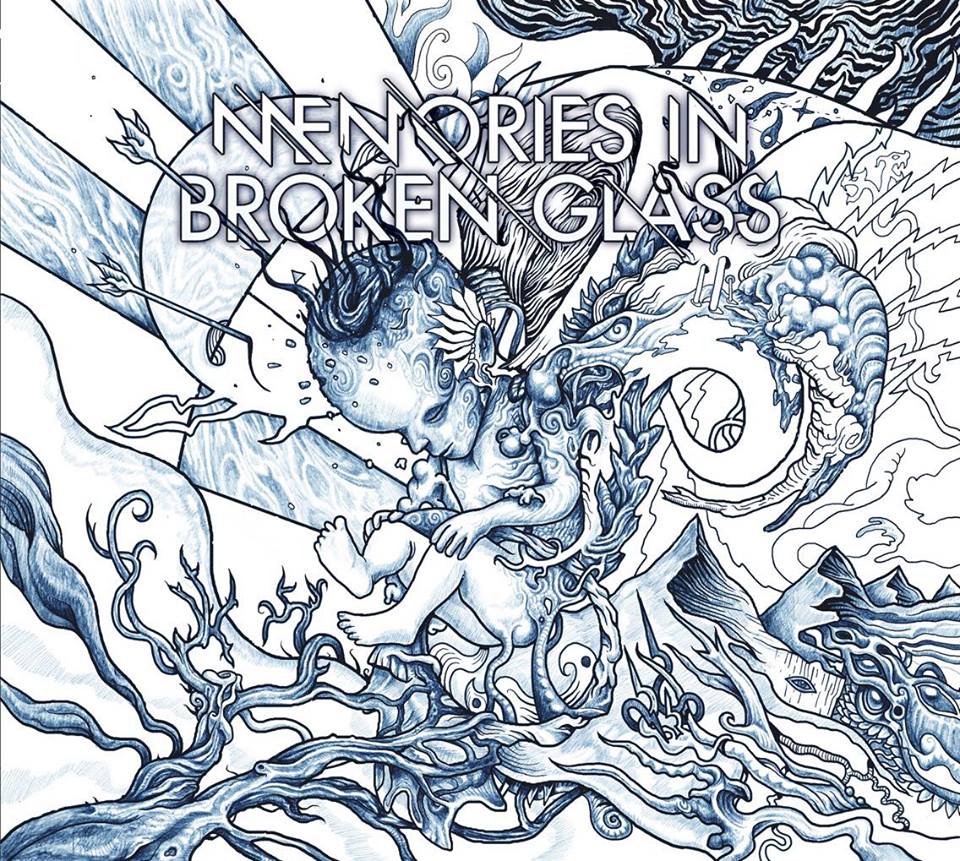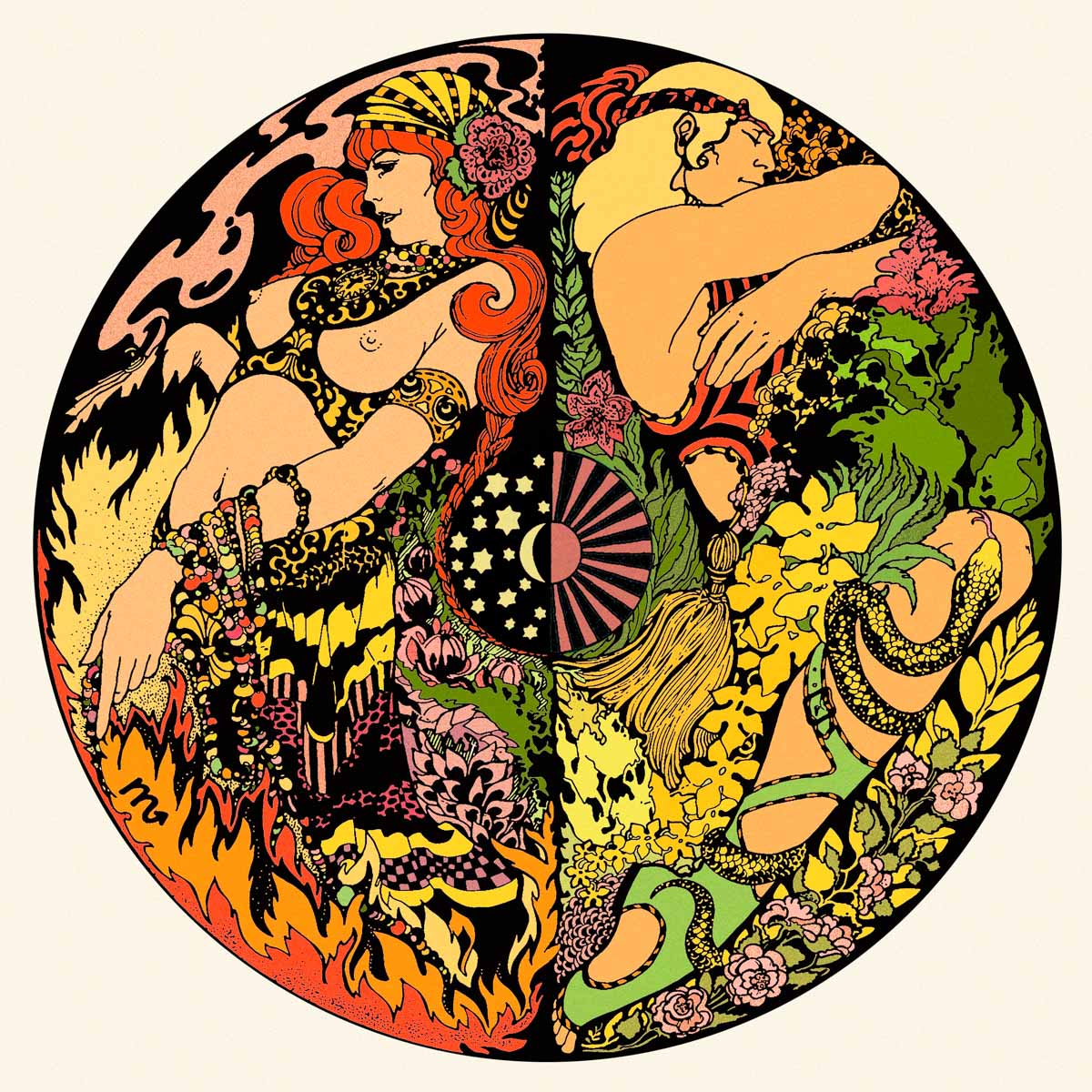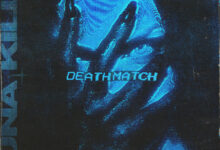 I doubt anyone in the mid-2000s – especially the members of SikTh themselves – would have believed you if you said that in 2017 they’d be considered a heavily influential band, partial godfathers to a genre named djent, which would explode in popularity. The band even split in 2007, only to reform for an EP, Opacities, in 2015, and now The Future In Whose Eyes?, their third full-length and first in 11 years.
I doubt anyone in the mid-2000s – especially the members of SikTh themselves – would have believed you if you said that in 2017 they’d be considered a heavily influential band, partial godfathers to a genre named djent, which would explode in popularity. The band even split in 2007, only to reform for an EP, Opacities, in 2015, and now The Future In Whose Eyes?, their third full-length and first in 11 years.
“Vivid” makes very clear right off the bat that the band mean business, with an incessant drumbeat and twisting, aggressive and constantly mutating guitar riff. Also, impossible to miss are Mikee Goodman’s many, and I do mean many, vocal styles. Switching frequently between guttural shouts, high-pitched shrieks, nasally growls, and more, he is the defining characteristic and most out-there element of SikTh. New to the fold is clean vocalist Joe Rosser, who handles most of the choruses and replaces former co-vocalist Justin Hill. Rosser is a distinct difference, with a lower, more theatrical delivery compared to Hill’s post-hardcore/emo style. The result is the band are given a prog/classic rock aspect that wasn’t there before, and it fits perfectly with their sound. While I prefer Hill individually, Rosser’s grand, sweeping delivery is perfect for SikTh. “Century Of The Narcissist?” is a steady downhill gallop anchored by drummer Dan Foord, lurching and skidding to a chorus that sounds just a little like early Linkin Park and a whole lot like Periphery (who list SikTh as perhaps their primary influence, so big surprise). “The Aura” is possibly the best track here, with a bouncy, melodic metalcore riff that will get people jumping for sure (and check out that bass run from James Leach), then stretches even further for a straight up 80s metal chorus from the playbook of Judas Priest, sped up to twice the speed.
“This Ship Has Sailed” is the first of three spoken-word passages, and while it serves as an interlude, it’s worth noting that all 3 spoken-word tracks are delivered with a devilish grandiosity that elevates them above filler. “Weavers Of Woe” follows, and it dials the weird all the way up. SikTh have always been a bit unhinged, but this is the first track to match that level of intensity here. Oddly enough, it’s also the weakest track yet. The big, dramatic chorus falls a little flat, the second half meanders a bit too much. The track’s saving grace is Mikee Goodman’s unbelievable array of voices – I’m sure the comparison has been made before, but Goodman comes across like a possessed Mike Patton. “Cracks Of Light” starts on a heavy, galloping riff interspersed with harmonized lead runs from guitarists Dan Weller and Pin. The spoken-word verses sap a bit of momentum, but the chorus is explosive and just poppy enough to be a hit single (with an assist from Periphery vocalist Spencer Sotelo). Like the previous track, it meanders a bit on the back half, but finishes strong, with vicious screams leading to a brief return to the intro gallop to close things out. “Golden Cufflinks” is the “soft” song of the album, which isn’t to say it’s radio-friendly in the slightest. It has a darker, more melodic stoner riff, tucked into a corner with early Mastodon, later-day Deftones, and some Dillinger Escape Plan and Gojira to keep things interesting. The chorus doubles down on groove even though it’s a fist-pumper. It might be a good starting point for introducing potential fans, but it’s also one of the weaker tracks here, and once again drifts a bit near the end. 
“The Moon’s Been Gone For Hours” is another spoken-word track, creating a bridge to “Riddles Of Humanity”, which careens off the wall with a lightning fast tech metal riff (good luck learning this one at home). Goodman’s tendency to cycle through multiple vocal styles in a single line matches the chaotic drive of the song well, and while the chorus hook is a little less powerful, it coasts well enough. “No Wishbones” kicks off with a thudding, massive riff not unlike Meshuggah, before veering into a verse full of dancing keys and strings and manic cleans. The defining moment of the song is still the post-chorus, with the catchiest vocal hook on the album, and the moment Joe Rosser really won me over as the right choice for the band. “Ride The Illusion” is another showcase for Dan Foort, who tears into the song with a vengeance before providing a steady hardcore bounce under the wild guitar licks of the verses. The pre-chorus plays with a slightly-off-rhythm sing-song beat, but the chorus is another big, punchy epic, and while it works for the song, the similarity to many other songs on this record is noticeable. The record closes with “When It Rains”, the last spoken-word track, an odd choice, but what else can you expect by this point?
The particular style of music SikTh peddle is still, for lack of a better term, bonkers, but they’ve reigned that squirming core of lunacy into a sleeker, punchier form on The Future In Whose Eyes? than ever before. It loses some of the raw rage in translation (also a side effect of Joe Rosser’s lower cleans and more operatic vocal style), but the band craft a proggy powerhouse of an album out of these tracks. SikTh purists may be thrown a bit, but they gain a timeless air that, at best, recalls peak Faith No More, and at worst sounds like effortlessly complex power metal. Fans of The Dillinger Escape Plan, Horse The Band, Protest The Hero, and other math-focused metal bands should take note, there’s a new (old) band joining the ranks.

